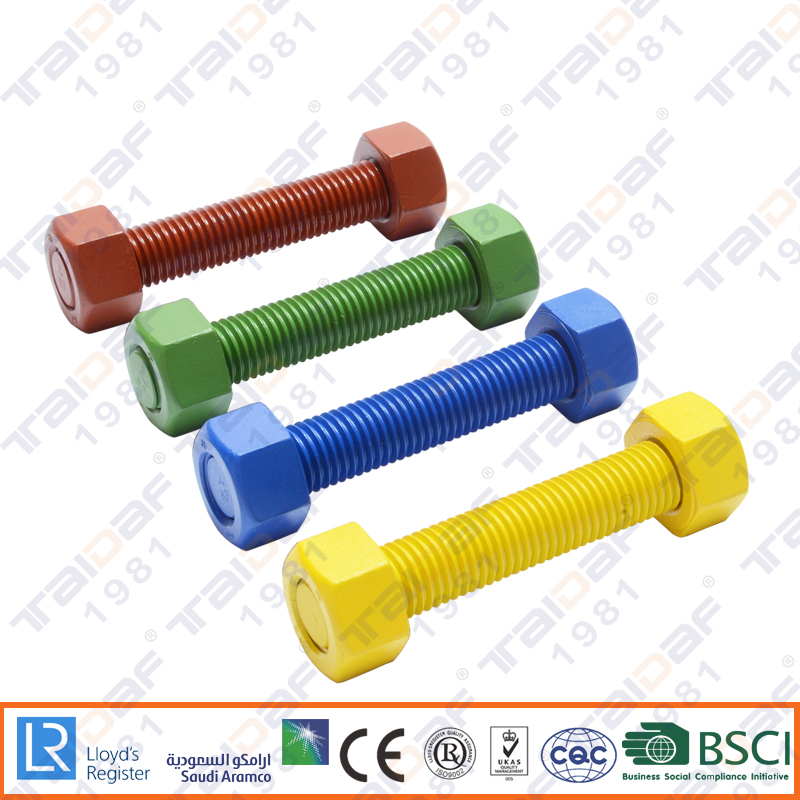Introduction to ASTM A320 L7 Stud Bolts
ASTM A320 L7 stud bolts are commonly used in applications where high pressure and extreme temperatures are present. They are typically used for bolting flanges together in pipelines, valves, and process equipment in the petrochemical, oil and gas, and power generation industries.
Performance Requirements
The ASTM A320 L7 stud bolts must meet certain performance requirements in order to be certified as appropriate for use in high pressure and high temperature applications. The performance requirements are specified by the ASTM International organization, which is responsible for developing and publishing standards for various materials, including metals and alloys.
The primary performance requirements for ASTM A320 L7 stud bolts include:
1. Tensile strength
Tensile strength is the maximum amount of stress a material can withstand before it begins to fail. The ASTM A320 L7 stud bolts must have a minimum tensile strength of 125 ksi.
2. Yield strength
Yield strength is the amount of stress required to cause a material to permanently deform. The ASTM A320 L7 stud bolts must have a minimum yield strength of 105 ksi.
3. Elongation
Elongation measures the amount of deformation a material undergoes before it breaks. The ASTM A320 L7 stud bolts must have a minimum elongation of 16% in 4D (four times the diameter of the bolt).
4. Reduction of area
Reduction of area measures the change in cross-sectional area of a specimen after it has been stretched to its breaking point. The ASTM A320 L7 stud bolts must have a minimum reduction of area of 50%.
5. Hardness
Hardness is a measure of a material's resistance to deformation, such as scratching, indentation, and abrasion. The ASTM A320 L7 stud bolts must have a maximum hardness of 35 HRC.
Testing Standards
To ensure that the ASTM A320 L7 stud bolts meet the performance requirements, various tests must be conducted during the manufacturing process. The most common tests include:
1. Tensile test
The tensile test is used to determine the tensile strength and yield strength of the material. A sample of the bolt is subject to a controlled force until it breaks, and the force required to break the bolt is measured.
2. Hardness test
The hardness test measures the material's resistance to deformation, as described above.
3. Charpy impact test
The Charpy impact test is used to determine the amount of energy required to fracture a material under high strain rates. This test is particularly useful for evaluating the material's toughness and resistance to brittle fracture.
4. Ultrasonic testing
Ultrasonic testing uses high-frequency sound waves to detect flaws in the material, such as cracks or voids.
5. Magnetic particle testing
Magnetic particle testing is used to detect surface and near-surface flaws by applying a magnetic field to the material and then applying a solution of magnetic particles. The particles will collect in areas where there are flaws, making them visible under ultraviolet light.
Conclusion
ASTM A320 L7 stud bolts are essential components for many high-pressure and high-temperature applications in various industries. Meeting the performance requirements and testing standards is critical to ensure their safe and reliable use. Choosing the right supplier that can provide high-quality ASTM A320 L7 stud bolts is crucial to ensure the success of any project involving these vital components.
Mechanical Properties
|
Grade
|
Size
|
Tensile ksi, min
|
Yield, ksi, min
|
Elong, %, min
|
RA % min
|
|
L7
|
Up to 2-1/2
|
125
|
105
|
16
|
50
|
|
2-5/8 - 4
|
115
|
95
|
16
|
50
|
|
|
4-1/8 - 7
|
100
|
75
|
18
|
50
|
Recommended Nuts and Washers
|
Bolt Grade
|
Nuts
|
Washers
|
|
L7
|
A194 7
|
F436
|
Production levels include: 6.8, 8.8, 10.9, 12.9, 10.9HV, 10.9HR, 8.8HR, B7, B7M, B16, L7, L7M, L4 3, B 8, B8 M, 660A \ B \ C \ D, N4400, 410, 420, 600, 625, 655, 665, 718, 2205, 2507, F51, F53, C276, 17-4, 825, 925, N08020
Production range: Diameter M12~M100 (1/2 "~4"); Bolt length 25-200mm; The length of the tooth strip is 55-8800mm.

01
High Quality
The company has advanced production and inspection equipment, participates in the formulation of several international standards, and has abundant technical strength. It has won 5 national invention patents and 15 national utility model patents.
02
Advanced Equipment
The company has the most advanced automated stereoscopic warehouse storage system and 20tons - level AGV intelligent handling robots for fastener industry in Ningbo area.
03
Professional Team
The company has its own R & D team and several senior technical and quality management personnel.
04
Custom Service
Our company has complete production & testing equipment. Can develop and produce products according to the drawings or samples provided by customers
The main equipment includes: 4 heat treatment Lines such as 80 meter long multi roll furnace, No. 6 mesh belt furnace, induction furnace and other heat treatment equipments; a robot - automatic hot forging bolt production machine; 21 full - automatic thread rolling machines; 3 multi - station cold forging machines; 9 chamfering - stamping machines; 1 dedicated production line for windpower anchor bolts; 3 turning - milling compound machines; 1 model - 100 peeling machine; 1 model - 40 peeling machine; 1 model - 100 straightening and calendering machine. The inspection equipment includes: 200 tons and 100 tons tensile strength testing machines; a fully automatic impact testing machines; an ultrasonic flaw detector; a magnetic particle flaw detectors; an eddy current flaw detector; 3 hardness test machines; a torque testing machine; a transverse vibration testing machine; a German Spectro desktop spectrometer; an American Niton handheld spectrometer; a projector; a metallographic analysis microscope, and other advanced laboratory equipment and dedicated vacuum-tight chamber .
We can provide a variety of fasteners, in line with national standards, the Ministry of Chemical Industry standards, the United States ASTM standards
Complete certificate: API-20E, API-20F, NORSOK M650/ISO17782,TUV Nande CE certification, TUV Nande AD2000 certification,ISO9001, ISO14001, ISO45001, to meet the needs of customers in many fields.
Diameter M12~M100 (1/2 "~4"); Bolt length 25-200mm; The length of the tooth strip is 55-8800mm.
During the development process, the company has always focused on the construction and improvement of the quality management system.
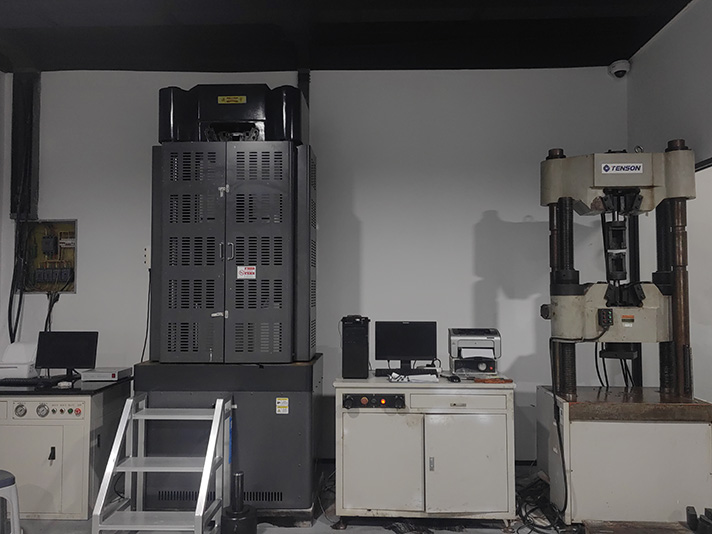
200 ton and 100 ton tensile strength testing
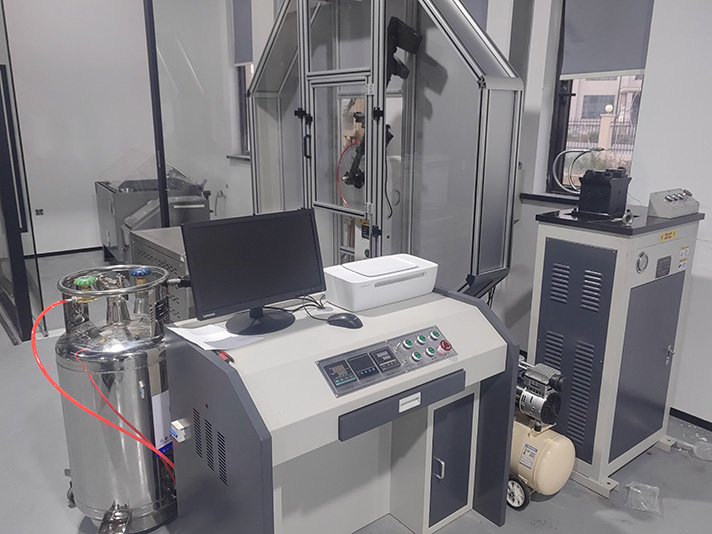
fully automatic impact testing machines
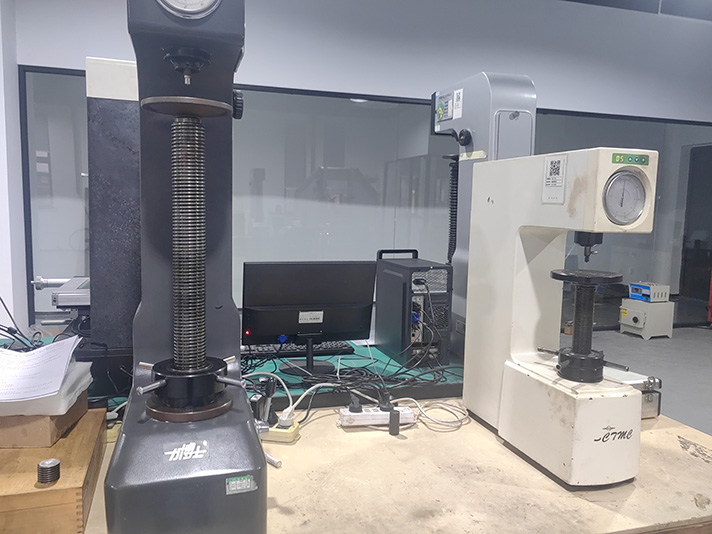
hardness machines
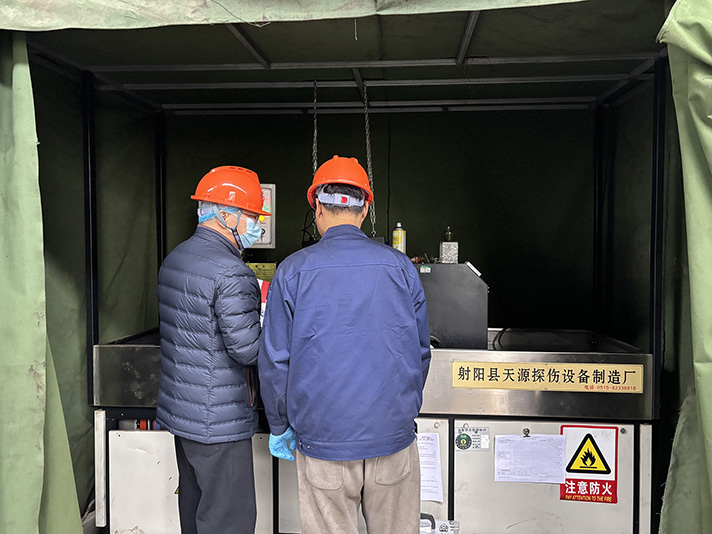
Magnetic particle testing machine permeation chamber

